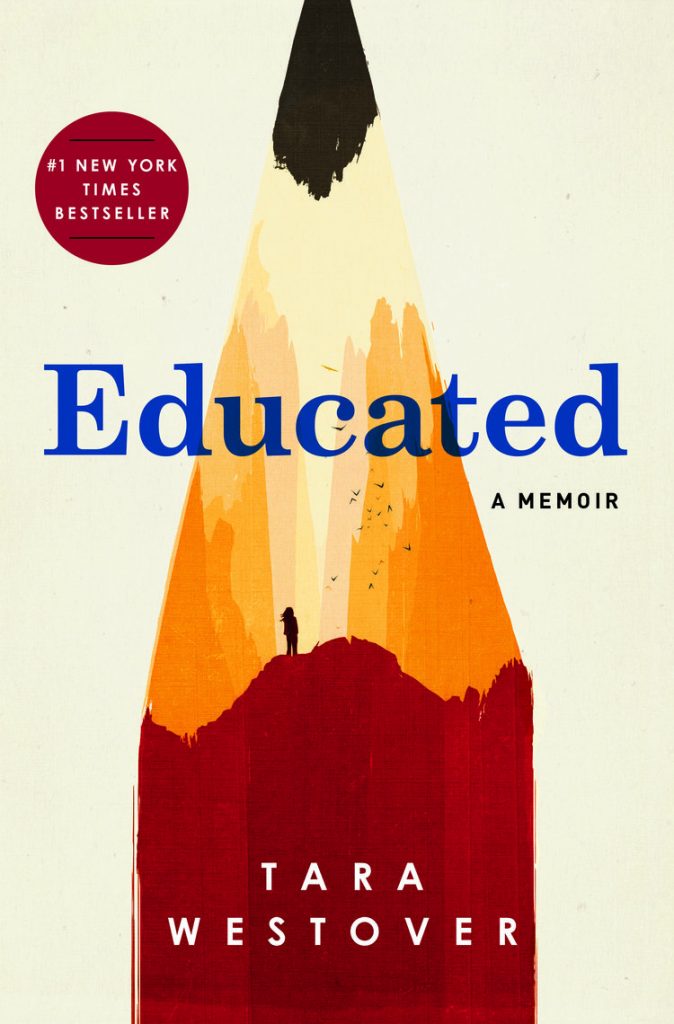National Book Month: Educated
October is National Book Month, and the College of Liberal Arts will be celebrating all month long! To kick off this month-long series, we begin with a Common Ground edition of National Book Month.

October is National Book Month, and the College of Liberal Arts will be celebrating all month long! To kick off this month-long series, we begin with a Common Ground edition of National Book Month.
This year’s Common Ground reading selection is Educated: A Memoir, a #1 New York Times Bestseller by Tara Westover.
This memoir follows Westover’s first-hand experience of growing up in a fundamentalist, survivalist, isolated household in Idaho, and grapples with the process of forming her own identity in that environment.
From the author’s website, Educated follows Westover’s story:
“Tara Westover was seventeen the first time she set foot in a classroom. Born to survivalists in the mountains of Idaho, she prepared for the end of the world by stockpiling home-canned peaches. In the summer she stewed herbs for her mother, a midwife and healer, and in the winter she salvaged in her father’s junkyard.
“Her father forbade hospitals, so Tara never saw a doctor or nurse. Gashes and concussions, even burns from explosions, were all treated at home with herbalism. The family was so isolated from mainstream society that there was no one to ensure the children received an education, and no one to intervene when Tara’s older brother became violent.
“Then, lacking a formal education, Tara began to educate herself. She taught herself enough mathematics and grammar to be admitted to Brigham Young University, where she studied history, learning for the first time about important world events like the Holocaust and the civil rights movement. Her quest for knowledge transformed her, taking her over oceans and across continents, to Harvard and to Cambridge. Only then would she wonder if she’d traveled too far, if there was still a way home.”
In preparation for this event, the College asked each Common Ground fellow about how they will tackle Educated from the viewpoint of their area of expertise:
Dr. Claire Katz, Philosophy
“My remarks will examine two different models of education, both of which can be found in Westover’s book: one is inspired by the Allegory of the Cave from Plato’s Republic and the other is found in the Jewish tradition inspired by a rabbinic interpretation of the expulsion from the Garden of Eden.”
Dr. Theresa Morris, Sociology
“I plan to examine the book and how it relates to domestic violence, particularly sibling violence.”
Dr. Robin Veldman, Religious Studies
“I plan to talk about how religion appears, and doesn’t, in the book. Westover states that “This story is not about Mormonism. Neither is it about any other form of religious belief.” In one sense this is of course true, because her family is in no way representative of Mormonism and it would be a mistake to interpret the book as saying anything about Mormonism or about religious people in general. But from a religious studies perspective, I also want to point out that the book is about religion, and we can see this particularly well if we shift from defining religion as a purely cognitive phenomenon (e.g., comprised of beliefs) to defining it materially, in terms of how it is embodied.
Once we make this move we can sidestep questions about whether a book like Educated is “about religion” and instead explore how religious beliefs become intimately bound with the material world through emotions, senses of identity and belonging.”
Dr. Matthew Vess, Psychological & Brain Sciences
“I’ll be commenting on a core theme in the book that highlights tensions between a fundamentalist orientation to religious faith and the acceptance of secular approaches to medicine. What leads people to forego evidence based approaches to medicine and choose instead to rely on faith alone? My research suggests that one reason for this prioritization of faith is that religion is a central source of meaning in life for devout individuals. Thus, when highly religious people have a heightened need to secure a sense of meaning, they tend to prioritize the validation of their faith, even if doing so may ultimately compromise their physical health. I’ll review both theoretical and empirical scholarship from my laboratory that speaks to this issue.”
Dr. Anna Wolfe, Communication
“I plan to focus on a section of the text that many people may not have even read: The section titled “A Note on the Text” on pp. 333-334.
Specifically, Westover’s description of her challenges in discerning the “true story” of her father connects to my scholarly interest in questions of narrative sense-making and identity conflicts. That is: How do our efforts to create plausible accounts of our lives help us to cope with ambiguity and position us with/against others?”
The College of Liberal Arts is proud to present the 2019 Common Ground event, Inside the “Educated” Mind: A Discussion with Common Ground Faculty. Be sure to join us on Monday, October 14, 2019 at 6:00 p.m. in Rudder Theater.
Read more about the Common Ground event here.

